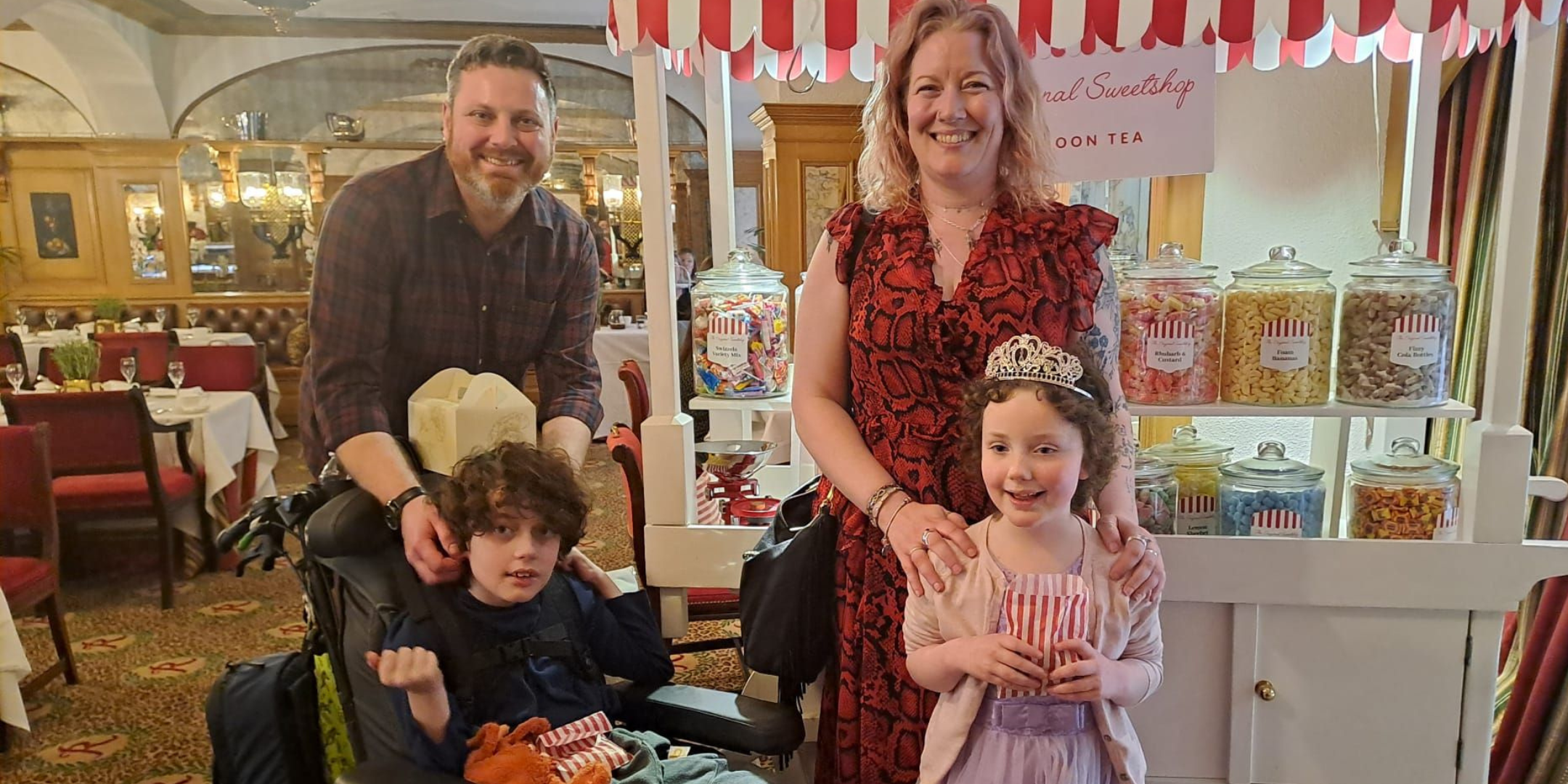Lucas

“Lucas has such a gorgeous soul, and this shouldn’t be his story.”
These are the words of Michelle, whose 11-year-old son, Lucas, has a condition which she says is “destroying his brain bit by bit.”
Two years ago, Lucas was diagnosed with Metacromatic Leukodystrophy (MLD), a rare inherited disorder affecting mainly the white matter of the brain, causing a progressive loss of physical and mental skills.
“Life is incredibly difficult,” said Michelle. “There had been no signs of the illness when Lucas was younger. But since his diagnosis, he has been declining rapidly. Lucas can’t walk anymore, he struggles to hold his own weight, and has been in a wheelchair since March 2023. We have had hoists fitted and he uses a special supportive chair at school.
“In January, Lucas had his gallbladder removed and had a peg tube fitted for his food and medication. The speed his condition has took hold has been a lot quicker than I imagined. I thought it would be a slower decline. But the decline is significant.
“We are lucky to get words from him every few days, but Lucas is still really smiley and giggly. He is so loving and caring and we know he understands because he responds in the right way.”
Because the condition is genetic, parents Michelle and Tim, had to also go through testing with their daughter, Penelope, who was six at the time.
“Lucas was undergoing lots of tests because his behaviour had become a bit unusual and strange at school,” said Michelle. “It was just after lockdown so we thought it was the impact of that, then he started to have absences, which we thought could be a form of seizure.
“When we got his diagnosis, we were devastated. But just over a week later, we were told there might be a treatment that could stop progressions. After having our hopes lifted, we horrifically found out he couldn’t have the treatment because he was displaying too many symptoms. Our boy couldn’t be saved.
“We then discovered that Penelope also had the condition. It was just blow after blow. Utter devastation and we didn’t know how to get through it. Two years on, Penelope is doing okay. She has been able to have the treatment that Lucas couldn’t – it’s gene therapy which involved her bone marrow being altered and then transplanted. She is only the second child in the country to do so and because there is so much unknown, only time will tell how it has worked.
“Penelope is trying to understand about her brother. She asks me when Lucas is going to get fixed? How do you answer that question?
“To have Lucas as a healthy boy for nine years makes this so hard. Parts of me can be okay and then I get angry and upset.”
Michelle often turns to Rainbows when she feels she can’t cope. “The staff at Rainbows have been a great support to us,” she said. “Being in Lincolnshire, we can’t always get to the hospice itself, which is in Leicestershire, but we can always call on our Family Support Worker. She comes to visit us at home, and it helps me to know there is someone who understands and can listen. I know that if there is anything I need, she will help, especially when I am not in the right headspace.
“We have also been to Rainbows and had family days. I do sometimes struggle with it as I feel we shouldn’t need to go to Rainbows. But we know we need it and knowing that support is there is really helpful. Lucas loves it. He absolutely loves the pool and the Music Room, and we have all benefited from massages.
“We don’t know on the future for Lucas, we don’t know how long we have left with him. The doctors haven’t said much as it is very rare. Four children are born a year with this in England so there is little knowledge, and each case is different as it depends on which part of the brain is affected, or what infections they get, So far, we have been really lucky as Lucas hasn’t had any chest infections so far. But eventually, each part of his brain will shut down.”
We have also been to Rainbows and had family days. Lucas loves it. He absolutely loves the pool and the Music Room, and we have all benefited from massages.